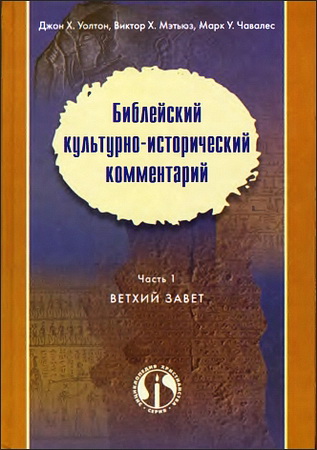
Cambridge Companions - Late Modern Philosophers and Their Works 1800-2000
Few thinkers in the history of philosophy are more controversial than Hegel. Philosophers are either for or against him. Rarely do they regard him with cool detachment, weighing his merits and faults with strict impartiality. Hegel has been dismissed as a charlatan and obscurantist, but he has also been praised as one of the greatest thinkers of modern philosophy. As a result of these extreme views, Hegel has been either completely neglected or closely studied for decades.
Whether we love or hate Hegel, it is difficult to ignore him. We cannot neglect him if only because of his enormous historical significance. Most forms of modern philosophy have either been influenced by Hegel or reacted against him. This is true not only of Marxism and existentialism – the most obvious cases in point – but also of critical theory, hermeneutics and, if only in a negative sense, analytic philosophy. Hegel remains the watershed of modern philosophy, the source from which its many streams emanate and divide. If the modern philosopher wants to know the roots of his own position, sooner or later he will have to turn to Hegel.
Hegel demands our attention for more than historical reasons. If we consider any fundamental philosophical problem, we find that Hegel has proposed an interesting solution for it. He claimed that his system provides the only viable middle path between every philosophical antithesis. He held that it preserves the strengths, and cancels the weaknesses, of realism and idealism, materialism and dualism, relativism and absolutism, skepticism and dogmatism, nominalism and Platonism, pluralism and monism, radicalism and conservatism. Indeed, the more we study Hegel the more we find that his system seems to accommodate every viewpoint and to anticipate every objection.
The Cambridge Companion to Hegel
Edited by Frederick C. Beiser, 1999
- Introduction: Hegel and the problem of metaphysics. FREDERICK C. BEISER
- 1. Hegel’s intellectual development to 1807. H.S. HARRIS
- 2. You Can’t Get There from Here: Transition problems in Hegel’s Phenomenology of Spirit. ROBERT PIPPIN
- 3. Hegel’s conception of logic. JOHN BURBIDGE
- 4. Hegel’s idealism: The logic of conceptuality. THOMAS E. WARTENBERG
- 5. Hegel’s dialectical method. MICHAEL FORSTER
- 6. Thought and being: Hegel’s critique of Kant’s theoretical philosophy. PAUL GUYER
- 7. Hegel’s ethics. ALLEN WOOD
- 8. The basic context and structure of Hegel’s Philosophy of Right. KENNETH WESTPHAL
- 9. Hegel’s historicism. FREDERICK C. BEISER
- 10. Hegel on religion and philosophy. LAURENCE DICKEY
- 11. Hegel’s aesthetics: An overview. ROBERT WICKS
- 12. Transformations of Hegelianism, 1805–1846. JOHN TOEWS
- 13. Hegel and Marxism. ALLEN WOOD
- 14. Hegel and analytic philosophy. PETER HYLTON
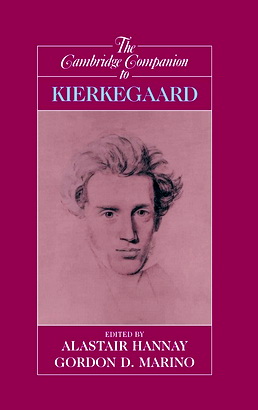
The Cambridge Companion to Kierkegaard
Edited by Alastair Hannay and Gordon D. Marino, 1998
- Introduction. ALASTAIR HANNAY and GORDON D. MARINO
- 1. "Out with It!": The modern breakthrough, Kierkegaard and Denmark. BRUCE H. KIRMMSE
- 2. The unknown Kierkegaard: Twentieth-century receptions. ROGER POOLE
- 3. Art in an age of reflection. GEORGE PATTISON
- 4. Kierkegaard and Hegel. MEROLD WESTPHAL
- 5. Neither either nor or: The perils of reflexive irony. ANDREW CROSS
- 6. Realism and antirealism in Kierkegaard's Concluding: Unscientific Postscript. C. STEPHEN EVANS
- 7. Existence, emotion, and virtue: Classical themes in Kierkegaard. ROBERT C. ROBERTS
- 8. Faith and the Kierkegaardian leap. M. JAMIE FERREIRA
- 9. Arminian edification: Kierkegaard on grace and free will. TIMOTHY P. JACKSON
- 10. "Developing" Fear and Trembling. RONALD M. GREEN
- 11. Repetition: Getting the world back. EDWARD F. MOONEY
- 12. Anxiety in The Concept of Anxiety. GORDON D. MARINO
- 13. Kierkegaard and the variety of despair. ALASTAIR HANNAY
- 14. Kierkegaard's Christian ethics. PHILIP L. QUINN
- 15. Religious dialectics and Christology. HERMANN DEUSER
- 16. The utilitarian self and the "useless" passion of faith. KLAUS-M. KODALLE
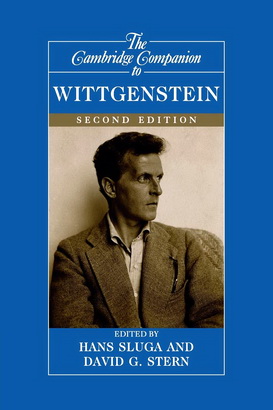
The Cambridge Companion to Wittgenstein
Edited by Hans Sluga and David G. Stern, 2018
- Wittgenstein: Life and work. An introduction. Hans Sluga
- 1 - Wittgenstein's critique of philosophy. Robert J. Fogelin
- 2 - Pictures, logic, and the limits of sense in Wittgenstein's Tractatus. Thomas Ricketts
- 3 - Fitting versus tracking: Wittgenstein on representation. Donna M. Summerfield
- 4 - Philosophy as grammar. Newton Garver
- 5 - A philosophy of mathematics between two camps. Steve Gerrard
- 6 - Necessity and normativity. Hans-Johann Glock
- 7 - Wittgenstein, mathematics, and ethics: Resisting the attractions of realism. Cora Diamond
- 8 - Notes and afterthoughts on the opening of Wittgenstein's Investigations. Stanley Cavell
- 9 - Mind, meaning, and practice. Barry Stroud
- 10 - “Whose house is that?” Wittgenstein on the self. Hans Sluga
- 11 - The question of linguistic idealism revisited. David Bloor
- 12 - Forms of life: Mapping the rough ground. Naomi Scheman
- 13 - Certainties of a world-picture: The epistemological investigations of On Certainty. Michael Kober
- 14 - The availability of Wittgenstein's philosophy. David G. Stern
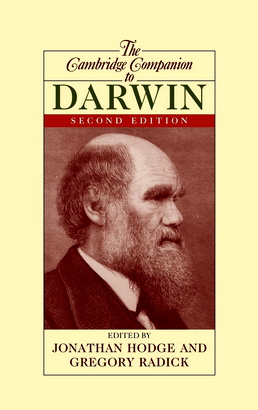
The Cambridge Companion to Darwin
2nd Edition, Jonathan Hodge and Gregory Radick, 2003
- Introduction. Jonathan Hodge, Gregory Radick
Part I - Darwin’s theorising
- 1 - The making of a philosophical naturalist. Phillip R. Sloan
- 2 - The notebook programmes and projects of Darwin’s London years. Jonathan Hodge
- 3 - Darwin on generation, pangenesis and sexual selection. Jim Endersby
- 4 - Darwin on mind, morals and emotions. Robert J. Richards
- 5 - The arguments in the Origin of Species. C. Kenneth Waters
Part II - Historical contexts
- 6 - Is the theory of natural selection independent of its history? Gregory Radick
- 7 - Darwin’s science and Victorian philosophy of science. David L. Hull
- 8 - Darwin and Victorian Christianity. John Hedley Brooke
- 9 - Darwin, social Darwinism and eugenics. Diane B. Paul
- 10 - The place of Darwin’s theories in the intellectual long run. Jonathan Hodge, Gregory Radick
Part III - Current issues
- 11 - From Darwin to today in evolutionary biology. Jean Gayon
- 12 - Metaphysical and epistemological issues in modern Darwinian theory. Elliott Sober
- 13 - Darwinian concepts in the philosophy of mind. Kim Sterelny
- 14 - Darwinism in moral philosophy and social theory. Alex Rosenberg
- 15 - Belief in God in a Darwinian age. Michael Ruse
Part IV - Philosphical prospects
- 16 - In Darwin’s wake, where am I? Daniel C. Dennett
- 17 - Ethical expressions: why moralists scowl, frown and smile. Owen Flanagan
- 18 - Is human nature natural? Simon Blackburn
- 19 - Giving Darwin his due. Philip Kitcher
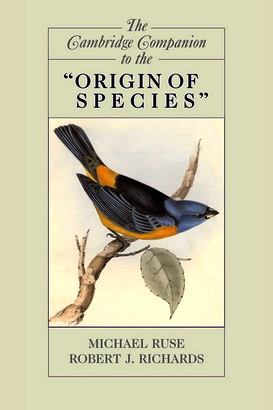
The Cambridge Companion to the “Origin of Species”
Edited by Michael Ruse and Robert J. Richards, 2009
- Foreword. Edward O. Wilson
- Introduction. Michael Ruse, Robert J. Richards
- 1 - The Origin of the Origin. Michael Ruse
- 2 - Darwin’s Analogy between Artificial and Natural Selection in the Origin of Species. Mark A. Largent
- 3 - Variation and Inheritance. Robert Olby
- 4 - Darwin’s Theory of Natural Selection and Its Moral Purpose. Robert J. Richards
- 5 - Originating Species: Darwin on the Species Problem. Phillip R. Sloan
- 6 - Darwin’s Keystone: The Principle of Divergence. David Kohn
- 7 - Darwin’s Difficulties. A. J. Lustig
- 8 - Darwin’s Geology and Perspective on the Fossil Record. Sandra Herbert, David Norman
- 9 - Geographical Distribution in the Origin of Species. Peter J. Bowler
- 10 - Classification in Darwin’s Origin. Richard A. Richards
- 11 - Embryology and Morphology. Lynn K. Nyhart
- 12 - Darwin’s Botany in the Origin of Species. Vassiliki Betty Smocovitis
- 13 - The Rhetoric of the Origin of Species. David J. Depew
- 14 - “Laws impressed on matter by the Creator”? The Origin and the Question of Religion. John Hedley Brooke
- 15 - Lineal Descendants: The Origin’s Literary Progeny. Gillian Beer
- 16 - The Origin and Political Thought: From Liberalism to Marxism. Naomi Beck
- 17 - The Origin and Philosophy. Tim Lewens
- 18 - The Origin of Species as a Book. Michèle Kohler, Chris Kohler
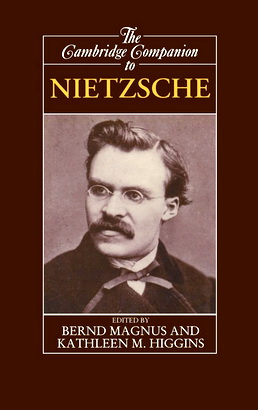
The Cambridge Companion to Nietzsche
Edited by Bernd Magnus and Kathleen M. Higgins, 1996
- Introduction to the Cambridge companion to Nietzsche. BERND MAGNUS and KATHLEEN M. HIGGINS
Part I. Introduction to Nietzsche’s works
- 1. Nietzsche’s works and their themes. BERND MAGNUS and KATHLEEN M. HIGGINS
Part II. The use and abuse of Nietzsche’s life and works
- 2. The hero as outsider. R. J. HOLLINGDALE
- 3. Nietzsche and the Judaeo-Christian tradition. JÖRG SALAQUARDA
- 4. Nietzsche’s political misappropriation. TRACY B. STRONG
Part III. Nietzsche as philosopher
- 5. Nietzsche’s kind of philosophy. RICHARD SCHACHT
- 6. Nietzsche ad hominem: Perspectivism, personality, and ressentiment revisited. ROBERT C. SOLOMON
- 7. Nietzsche, modernity, aestheticism. ALEXANDER NEHAMAS
- 8. Nietzsche’s alleged farewell: The premodern, modern, and postmodern Nietzsche. ROBERT B. PIPPIN
Part IV. Nietzsche’s influence
- 9. Nietzsche in the twentieth century. ERNST BEHLER
- 10. Nietzsche’s French legacy. ALAN D. SCHRIFT
- 11. Nietzsche and East Asian thought: Influences, impacts, and resonances. GRAHAM PARKES
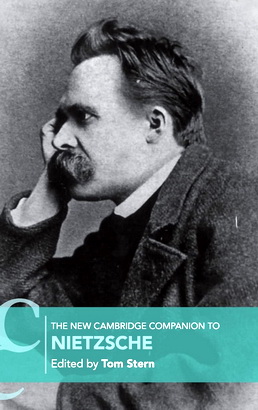
The New Cambridge Companion to Nietzsche
Edited by Tom Stern, 2019
- Introduction: Nietzsche ’ s Life and Works. TOM STERN
Part I. Influences and Interlocutors
- 1. What Nietzsche Did and Did Not Read. ANDREAS URS SOMMER
- 2. Nietzsche ’ s Untimely Antiquity. JAMES I. PORTER
- 3. Schopenhauer: Nietzsche ’ s Antithesis and Source of Inspiration. ROBERT WICKS
- 4. Nietzsche and Wagner. MARK BERRY
- 5. On Nietzsche ’ s Legacy. STEPHEN MULHALL
Part II. Selected Texts
- 6. The Birth of Tragedy : Transfiguration through Art. PAUL RAIMOND DANIELS
- 7. Zarathustra: Nietzsche ’ s Rendezvous with Eternity. DIRK R. JOHNSON
- 8. Figurative Philosophy in Nietzsche ’ s Beyond Good and Evil. ROBERT B. PIPPIN
- 9. Nietzsche ’ s On the Genealogy of Morality: Moral Injury and Transformation. CHRISTA DAVIS ACAMPORA
Part III. Truth, History and Science
- 10. Nietzsche and the Truth of History. ANTHONY K. JENSEN
- 11. Nietzsche, Truth, and Naturalism. CHRISTIAN J. EMDEN
- 12. Nietzsche on the Arts and Sciences. SEBASTIAN GARDNER
Part IV. Will, Value and Culture
- 13. The Will to Power. LAWRENCE J. HATAB
- 14. Nietzsche’s Ethics of Affirmation. TOM STERN
- 15. Nietzsche on Free Will. MICHAEL N. FORSTER
- 16. Nietzsche’s Germans. RAYMOND GEUSS

The Cambridge Companion to Heidegger
2nd edition, edited by Charles B. Guignon, 2006
- Introduction. Charles B. Guignon
- 1. The question of being: Heidegger’s project. Dorothea Frede
- 2. Reading a life: Heidegger and hard times. Thomas Sheehan
- 3. The principle of phenomenology. Taylor Carman
- 4. Time and phenomenology in Husserl and Heidegger. Robert J. Dostal
- 5. Laying the ground for metaphysics: Heidegger’s appropriation of Kant. William Blattner
- 6. Heidegger and the hermeneutic turn. David Couzens Hoy
- 7. Engaged agency and background in Heidegger. Charles Taylor
- 8. Death, time, history: Division II of Being and Time. Piotr Hoffman
- 9. Truth and the essence of truth in Heidegger’s thought. Mark A. Wrathall
- 10. Authenticity, moral values, and psychotherapy. Charles B. Guignon
- 11. Heidegger, Buddhism, and deep ecology. Michael E. Zimmerman
- 12. Heidegger and theology. John D. Caputo
- 13. Heidegger on the connection between nihilism, art, technology, and politics. Hubert L. Dreyfus
- 14. The fourfold. Julian Young
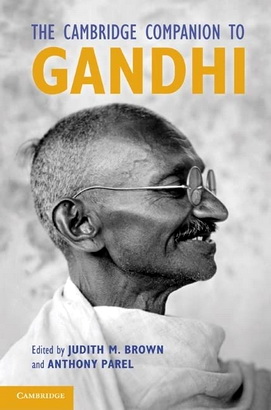
The Cambridge Companion to Gandhi
Edited by Judith M. Brown and Anthony Parel, 2011
- Introduction. Judith M. Brown
Part I - Gandhi: The historical life
- 1 - Gandhi’s World. Yasmin Khan
- 2 - Gandhi 1869-1915: The transnational emergence of a public figure. Jonathan Hyslop
- 3 - Gandhi As Nationalist Leader, 1915-1948. Judith M. Brown
Part II - Gandhi: Thinker and activist
- 4 - Gandhi’s key writings. Tridip Suhrud
- 5 - Gandhi’s religion and its relation to his politics. Akeel Bilgrami
- 6 - Conflict and nonviolence. Ronald J. Terchek
- 7 - Gandhi’s moral economics: The sins of wealth without work and commerce without morality. Thomas Weber
- 8 - Gandhi and the state. Anthony Parel
- 9 - Gandhi and social relations. Tanika Sarkar
Part III. - The contemporary Gandhi
- 10 - Literary and visual portrayals of Gandhi. Harish Trivedi
- 11 - Gandhi in independent India. Anthony Parel
- 12 - Gandhi’s global legacy. David Hardiman
Conclusion. Judith M. Brown, Anthony Parel

The Cambridge Companion to Hannah Arendt
Edited by Dana Villa, 2002
- Introduction: the development of Arendt’s political thought. DANA VILLA
PART I · TOTALITARIANISM AND NATIONALISM
- 1. Arendt’s theory of totalitarianism: a reassessment. MARGARET CANOVAN
- 2. Arendt and nationalism. RONALD BEINER
PART II · POLITICAL EVIL AND THE HOLOCAUST
- 3. Arendt’s Eichmann in Jerusalem. SEYLA BENHABIB
- 4. Arendt and the Holocaust. MARY G. DIETZ
PART III · FREEDOM AND POLITICAL ACTION
- 5. Freedom: the priority of the political. JEROME KOHN
- 6. Political action: its nature and advantages. GEORGE KATEB
PART IV · ARENDT AND THE ANCIENTS
- 7. Arendt’s Hellenism. J. PETER EUBEN
- 8. Athens and Rome. JACQUES TAMINIAUX
- 9. Equality and elitism in Arendt. HAUKE BRUNKHORST
PART V · REVOLUTION AND CONSTITUTION
- 10. Arendt’s constitutional politics. JEREMY WALDRON
- 11. Arendt on revolution. ALBRECHT WELLMER
PART VI · JUDGMENT, PHILOSOPHY, AND THINKING
- 12. Arendt’s theory of judgment. MAURIZIO PASSERIN D’ENTRÈVES
- 13. Arendt on philosophy and politics. FREDERICK M. DOLAN
- 14. Arendt on thinking. RICHARD J. BERNSTEIN
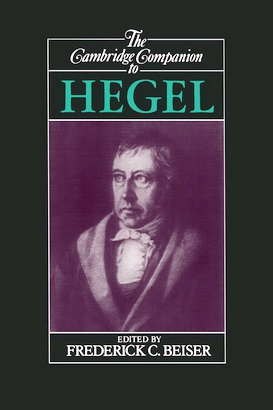
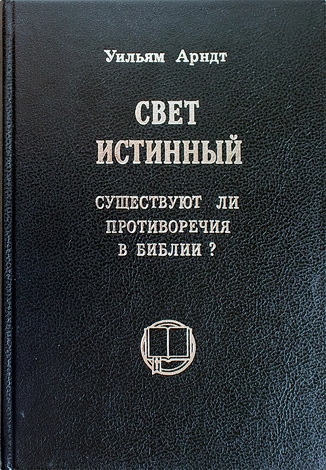
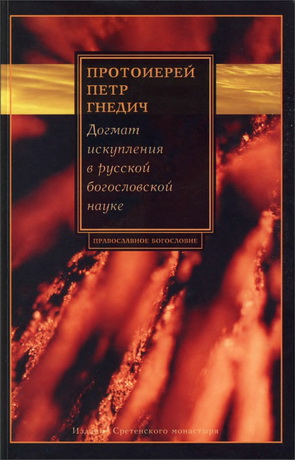
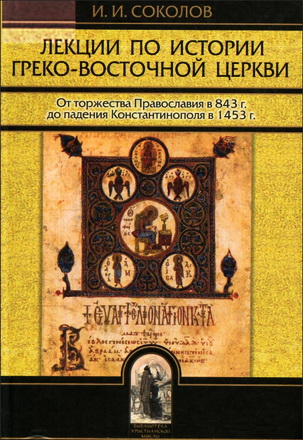

Комментарии
Пока нет комментариев. Будьте первым!